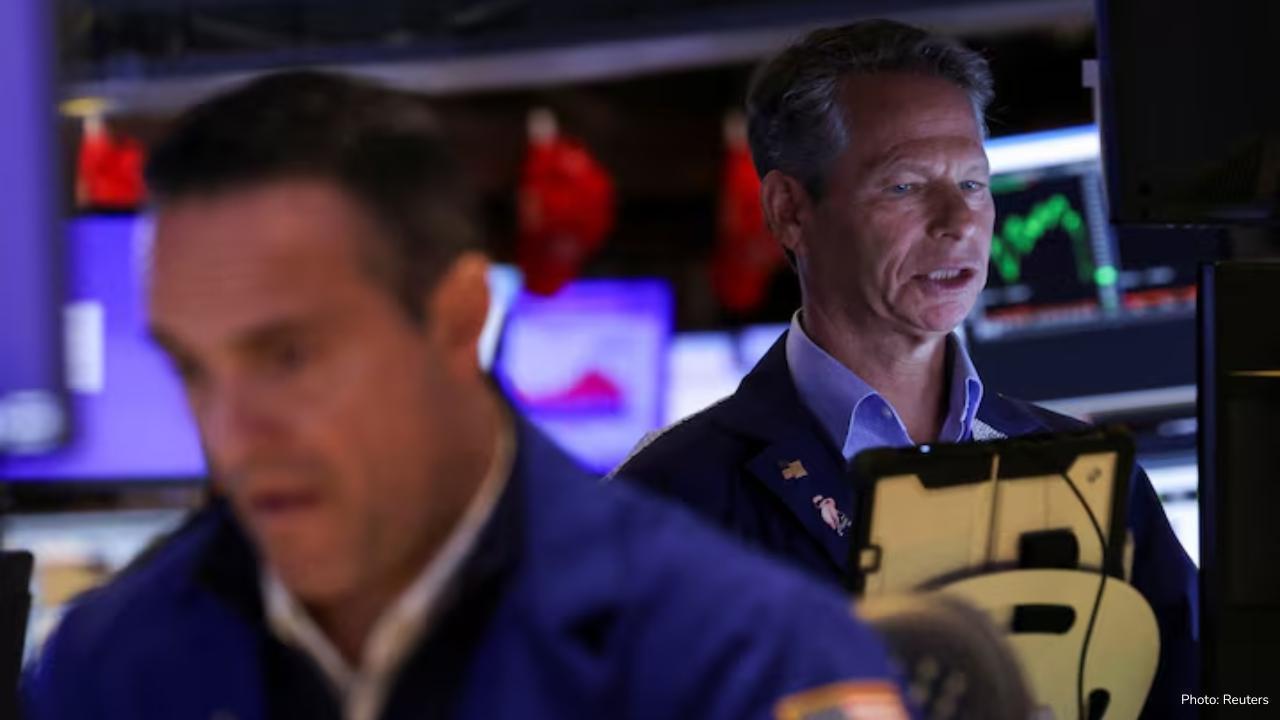
Post by : Monika
On October 1, 2025, global financial markets experienced significant fluctuations due to concerns over China's economic slowdown and recent policy changes. Investors around the world are closely monitoring developments in China, as the country's economic performance has a substantial impact on global trade and investment.
China's Economic Slowdown
China, the world's second-largest economy, has been experiencing a slowdown in growth. This deceleration is attributed to various factors, including reduced domestic demand, declining exports, and ongoing challenges in the real estate sector.
The slowdown has raised concerns among investors about the sustainability of China's economic expansion and its potential effects on global markets.
The Chinese government has acknowledged the slowdown and is implementing measures to stimulate the economy. These include monetary easing policies, such as lowering interest rates, and fiscal stimulus packages aimed at boosting infrastructure investment.
However, some analysts argue that these measures may not be sufficient to counteract the underlying structural issues affecting the economy.
Impact on Global Markets
The uncertainty surrounding China's economic outlook has led to increased volatility in global financial markets. Stock markets in Asia, Europe, and North America have experienced sharp declines, with investors seeking safer assets like gold and government bonds. The decline in Chinese demand for commodities has also affected prices, leading to a drop in the value of oil and other raw materials.
Emerging markets, which are often more reliant on trade with China, have been particularly affected. Currencies in countries such as Brazil, South Africa, and Indonesia have weakened, reflecting concerns about reduced demand for their exports. Additionally, foreign direct investment flows into these markets have slowed, as investors become more cautious amid the global economic uncertainty.
Policy Responses and Investor Sentiment
In response to the economic challenges, central banks and governments around the world are considering various policy measures. The U.S. Federal Reserve has indicated that it may adjust interest rates to support economic growth if the global slowdown persists. Similarly, the European Central Bank is exploring options to stimulate the eurozone economy, including potential rate cuts and increased asset purchases.
Investor sentiment remains cautious, with many choosing to hold cash or invest in low-risk assets. The ongoing trade tensions between the U.S. and China have added to the uncertainty, as tariffs and other trade barriers continue to affect global supply chains. Additionally, concerns about geopolitical issues, such as tensions in the Middle East and Europe, have further contributed to the risk-averse behavior of investors.
Long-Term Outlook
Looking ahead, the long-term outlook for global markets depends on several factors. The effectiveness of China's policy measures in addressing its economic challenges will be crucial. If the government can successfully stimulate domestic demand and stabilize key sectors, it may help restore investor confidence and support global economic growth.
However, structural issues such as the aging population, high debt levels, and environmental concerns pose ongoing challenges. Addressing these issues will require significant reforms and long-term planning. The ability of China's leadership to implement effective policies and navigate these challenges will play a critical role in shaping the future trajectory of both the Chinese and global economies.
The current volatility in global markets reflects the interconnectedness of economies and the significant influence of China's economic performance. While short-term fluctuations are expected, the focus will be on how China addresses
its economic challenges and the broader implications for global growth. Investors and policymakers will need to remain vigilant and adaptable as they navigate the evolving economic landscape.
China Economic slowdown Global markets










Mahindra's SUV Sales Rise After India's Tax Cut
Mahindra's SUV sales to dealers increased by 10% in September 2025, following India's GST reduction

Bollywood Stars Sue Google Over AI Videos Misusing Their Image
Bollywood actors Abhishek Bachchan and Aishwarya Rai Bachchan have filed a lawsuit against Google, s

India's Central Bank Keeps Interest Rate Unchanged at 5.50%
India's Reserve Bank holds repo rate at 5.50%, indicating potential rate cut in December amid low in

Trump's Gaza Peace Plan: Ceasefire, Hostage Exchange, and Future Governance
President Trump's 20-point plan aims to end the Gaza conflict with ceasefire, hostage exchange, and

Israeli Tech Sector Grows Amid Gaza Conflict
Despite the ongoing Gaza war, Israel's high-tech industry thrives in 2025, with increased funding an

Global Markets React to China's Economic Slowdown and Policy Changes
Global markets face uncertainty as China's economic slowdown and policy changes impact investor conf